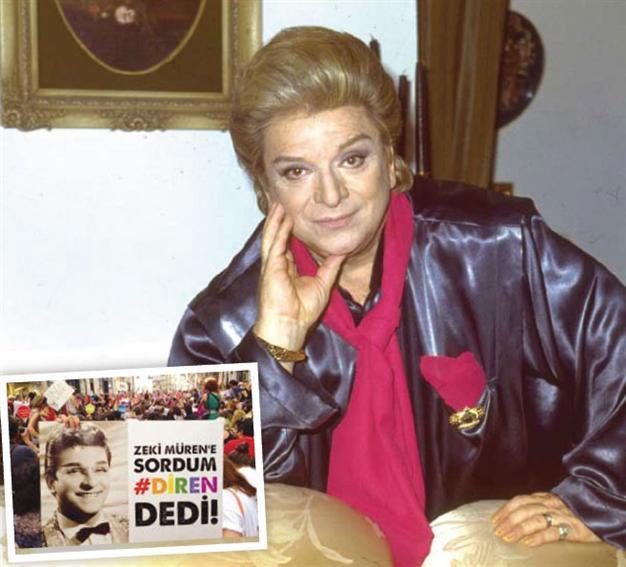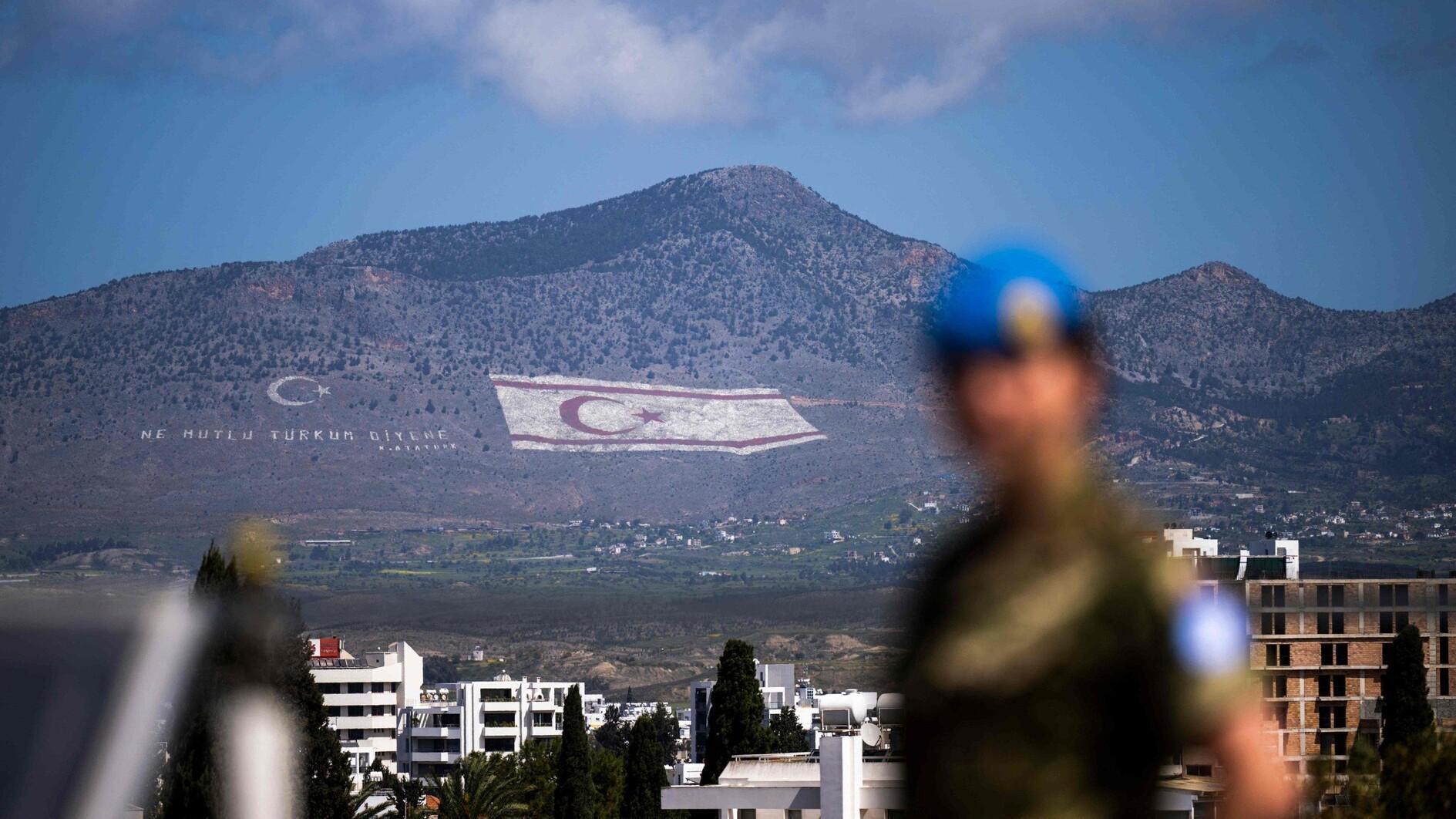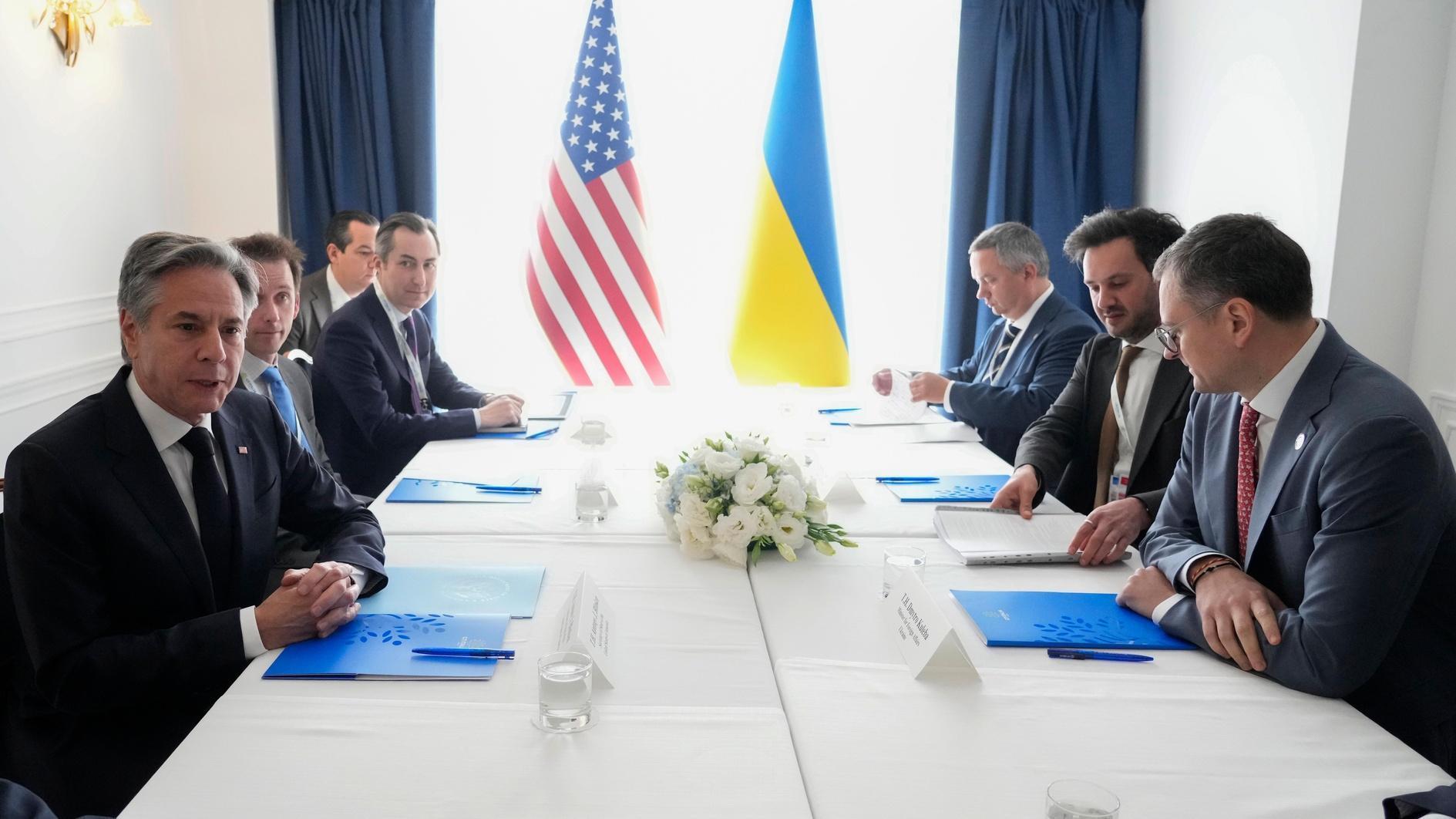Late Turkish music idol Zeki Müren becomes symbol of LGBT parade
EMRAH GÜLER ANKARA - Hürriyet Daily News

A banner (inset) reads ‘I asked Zeki Müren, he answered #resist.’ Müren inspired protesters at the Gay Pride rally.
A historic day it was, June 30, for the LGBT community. It was a day that shone brightly for acceptance, for visibility and for support, thanks to the unprecedented spirit of the Gezi Park protests that, from the first day, were all about embracing each other. Turks, Kurds, old school leftists, anti-capitalist Muslims, frustrated apolitical middle classes and the LGBT communities, who had all been isolated from one another in most cases, have come to show solidarity that set a tone for the protests, not only in Turkey, but across the world.Humor and creativity put smiles across the faces of millions, coining the term “disproportional wit” as an answer to the “disproportional violence” used by the police. Websites, Tumblr and Facebook pages emerged for the dozens of graffiti and banners. “Imagine there is no Tayyip,” read a popular banner, Tayyip being the prime minister’s first name. So #direnayol was the perfect hasthtag for Pride Week, which culminated with the Pride March. #resistdarling is the closest to the camp tone of the exclamation, ayol. The Pride March in Turkey had been experiencing an exponential increase in its participation since its first gathering in 2003, when a mere 30 showed up. June 30 saw a record number of people marching together, many not part of the LGBT community, joining in a show of solidarity to the call, “If you are not with us, we will be one less.”
‘No other Pashas’
But perhaps the real hero of the Pride March was Zeki Müren. The late singer, songwriter, actor and performer’s face adorned dozens of banners, his famous words changed for the spirit of the protests and the Pride March. “There is no other Paşa” read one of the banners, a picture of Müren with his coiffed hair and manicured hands accompanying the words and a heart with the colors of the rainbow. Paşa was one of the many nicknames of Müren. Another wrote, “I asked Zeki Müren, and he answered #diren.”
With the combination of enormous talent spread over many areas with an unapologetically garish public image, Müren has always been a powerhouse name in pop culture. His name has been associated with his unique brand of camp, an effeminacy which far exceeded that of all the other artists in Turkey – male or female.
His theatrical and flashy stage shows, especially in his early career, were always unique and revolutionary. Müren even affectionately gave names to his stage clothes, like Moon Prince or Hero’s Dream. He was the first man to wear a skirt on stage more than 20 years ago.
Zeki Müren’s flamboyant clothes, his heavy makeup, his coquettish dances, gestures and well-delivered speeches on TV all helped to build a unique image that penetrated our collective memory. His homosexuality was obvious but never made explicit. It couldn’t have been funnier and more ironic to see versions of banners reading, “We are the soldiers of Zeki Müren.” Albeit if this were a battle for LGBT freedoms, he would be the perfect commander.
















